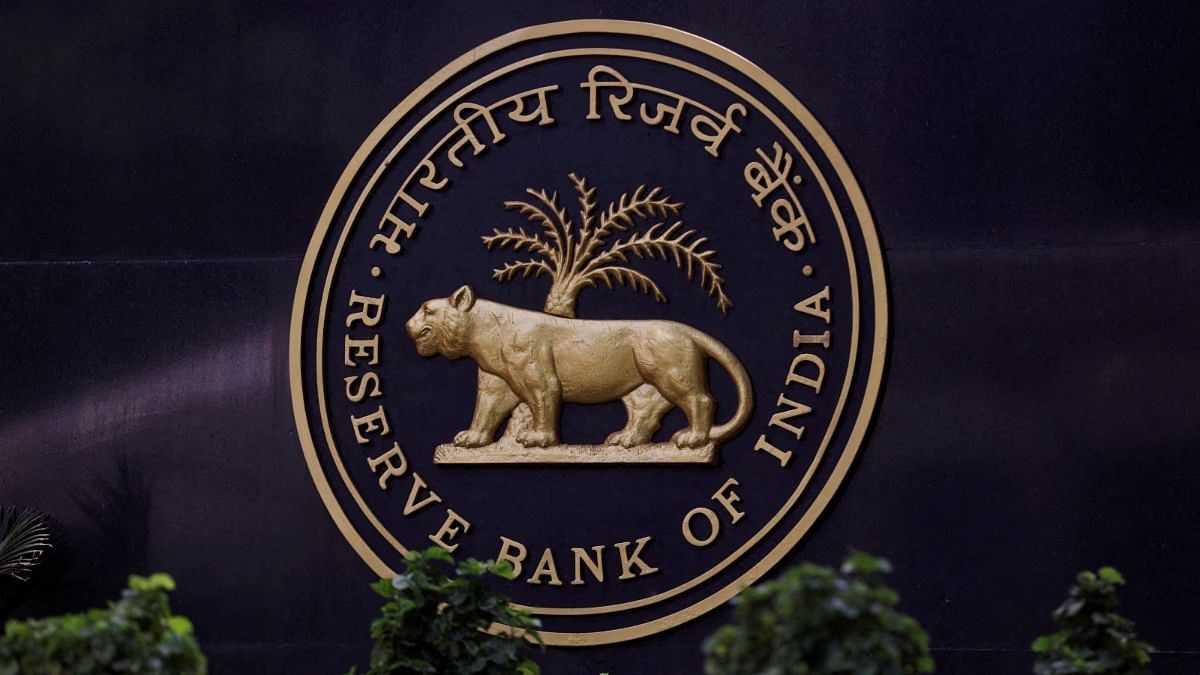RBI Says : Lenders Can’t Compound Penal Interest 2023

RBI Says : Lenders Can’t Compound Penal Interest 2023
The Reserve Bank of India (RBI) said on Friday that the penalty should be a “charge” rather than an “interest” that would be compounded to improve justice and transparency in the disclosure of punitive interest.
Regulated entities (RE) are forbidden from adding further interest on such charges. However, according to the RBI, this won’t affect how interest on loan accounts usually is compounded.

The central bank emphasized that many REs apply additional penalties on top of the regular interest rates when borrowers default or violate the conditions of a loan facility approval.
The RBI provided numerous recommendations to lenders in the circular based on examining practices for punitive interest and loan charges.
According to the circular, the borrower would be subject to ‘penal charges’ rather than ‘penal interest’ that is added to the rate of interest imposed on loans as punishment for failing to comply with essential terms and conditions of the loan contract.
The circular is released when there have been several instances of lenders charging defaulters an additional penalty rate of interest on top of the standard interest rate.
The RBI wants to ensure that lenders only utilize fines to the point where they encourage credit discipline. This action by the RBI is in favour of borrowers.” Chief Executive Officer of BankBazaar.com Adhil Shetty
The lenders must develop a policy for punitive fees or other fees on loans authorized by the board. According to the circular, they may not add any new components to the interest rate.

The severity of the penalty must be reasonable and proportionate to the breach of the loan contract’s terms and conditions.
Additionally, the penalties imposed on individual borrowers for non-business reasons may be milder than those imposed on non-individual borrowers for equivalent violations of essential terms and conditions.
The loan agreement must clearly explain the amount and justification of any penalties, and regulated organizations must post this information on their websites under the headings of interest rates and service fees.
When borrowers get warnings for failing to comply with essential loan terms and conditions, the relevant punitive costs must be disclosed. Additionally, each case in which a penalty was assessed must be admitted, along with its basis.
On January 1, these recommendations will become effective. Lenders are responsible for following instructions concerning any new loans obtained or renewed after the effective date.
According to the RBI, the transition to the new punitive charges regime for outstanding loans must occur at the following review or within six months of the circular’s effective date, whichever comes first.
Banks now include criminal interest as interest revenue, which increases their net interest margin.
Resurgent India Managing Director Jyoti Prakash Gadia states that the amended criteria would affect banks’ net interest margin because the penalties will now be calculated separately from the interest. However, based on the punitive interest collected in the past as a portion of their interest revenue, the damage would differ from bank to bank.
“At this time, estimating the circular’s impact is difficult. As the penalty cannot be levied along with the interest rate, there can be a negative effect on margins, according to Karthik Srinivasan, senior vice president and group head of ICRA’s financial sector ratings.

Additionally, because these will be charges, fee income will increase. The way the fees are set up will affect everything, Srinivasan continued.
In a landmark directive issued in 2023, the Reserve Bank of India (RBI), the country’s central banking authority, clarified that banks and other lending institutions could not compound penal interest charged on overdue loans. This move aims to provide relief to borrowers, especially during turbulent economic times, and ensure fair practices among lenders.
Penal interest is a punitive charge that lenders impose on borrowers who fail to pay their loan instalments on time. It is meant to serve as a deterrent for borrowers, discouraging them from defaulting on their loan repayments. Typically, this is a higher rate than the regular interest charged on the loan.
Lenders are not allowed to compound the penal interest charged on overdue loans. This means penal interest can be charged only on the outstanding principal amount and not the accumulated penal interest itself.
The directive also requires the penal interest rate to be reasonable and standardized across the industry to avoid arbitrary and excessively punitive charges on borrowers.
Lenders must explicitly disclose the penal interest rates in the loan agreement and make these rates easily accessible to all customers through their official channels.
The RBI requires all lending institutions to establish a robust and efficient grievance redressal mechanism for borrowers with concerns or complaints regarding the penal interest charged on their loans.

By preventing the compounding of penal interest, the RBI’s directive reduces the financial burden on borrowers already struggling with repayments.
The stipulation for transparent disclosure of penal interest rates ensures that borrowers are fully informed and aware of the charges they may incur if they default on their loan payments.
Standardizing the rate of penal interest across the industry aims to ensure that borrowers are treated fairly without being subject to arbitrary and excessively high charges.
Lenders may see a reduction in the income generated from penal interest charges, as they can no longer compound this interest. Lenders may need to revise their loan agreements, systems, and processes to comply with the new directive, which could entail some costs.
The directive may prompt lenders to reassess and tighten their credit risk management practices, as the punitive tool of compounded penal interest is no longer available.
The 2023 RBI directive on the non-compounding of penal interest marks a significant step towards safeguarding the interests of borrowers in India. It aims to strike a balance between the need for lenders to protect their interests and the necessity to prevent undue hardship on borrowers, particularly during economically challenging times.

While it imposes some limitations on lenders’ revenues from penal interest, it underscores the central bank’s role in ensuring responsible and fair lending practices. As the directive is implemented and its effects become more visible, it will be interesting to observe how the lending landscape in India evolves in response to this significant regulatory change.




